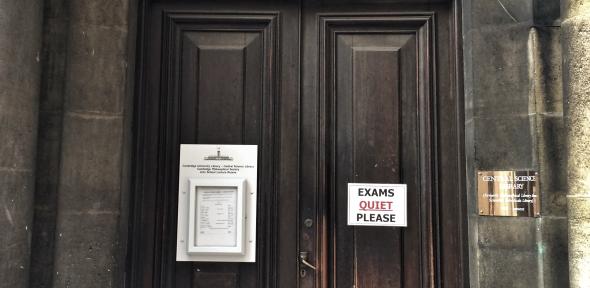
Submitted by Isabel Starkey on Fri, 07/10/2016 - 09:31
Thoughts on exams
Whilst many people might think that the three-hour written paper is the traditional Cambridge way of examining, it is a relatively new innovation in this ancient University. The first written examination paper was created in 1800. Until that point examinations were oral examinations. The dissertation, which is an increasingly common type of assessment in the Tripos, may not be as modern as we think. In the nineteenth-century the Classical Tripos had experimented with a ‘proto, and hugely unsuccessful and short-lived dissertation option’. Fortunately, its resurrection in the twentieth century was more successful.
These gems of Cambridge history were shared at the annual Directors of Teaching meeting by Professor Mary Beard. The theme of this year’s meeting was examination and assessment to coincide with the University’s root-and-branch review of its examination system, which is chaired by Professor Graham Virgo, PVC Education.
Professor Mary Beard was one of two speakers invited to share her thoughts on exams. Whilst she shared nuggets of historic anecdote with her usual wit, and wistfully imagined ‘a world without Part IA’, core to her talk was the critical question: what is the purpose of examinations? Or as nineteenth-century Classicists had reflected: ‘are we marking the papers or the man?
Tim Oates, from Cambridge Assessment, picked up this theme in his presentation on Cambridge Assessment’s approach to examinations. One of its central principles is the ‘construct’ of assessment: what do examiners want to assess and what is the examination actually judging: students’ knowledge, understanding, memory, competencies, stamina and resilience? A more provocative question that he raised, however, was what claim might an examiner be making about a student on the basis of their performance? Although Cambridge Assessment is not involved in University examinations, perhaps this question should be asked of all examinations, whether SATs for Key Stage 2 or at the end of Part II.
Read the full transcript of Professor Beard’s speech.
Read The Cambridge Approach: principles for designing, administering and evaluating assessment
